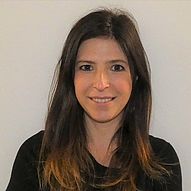
The Science of Well-being
The Science of Well-being
- Bachelor, Study Phase 2
- Winter Term
- Lecture and Tutorial
- Teaching/ Working Language: English
Aware that English is probably not the native language of the participants, possible language barriers are benevolently / indulgently taken into account. I look forward to welcoming many students who wish to take up this challenge.
Outline
Based on the most popular course in the history of Yale University ("Psychology and the Good Life" offered by Prof. Laurie Santos), this course is designed to teach students what the economic and psychological sciences have to say about what makes us, individuals - and in turn society - happy. By drawing on empirical findings from both the economics and psychology literature, this course is highly evidence-based and practice oriented. The course has 3 dimensions:
1.Theoretical: what science tells us about what makes us happy
2. Practical: how to put into practice strategies to be happy
3. Policy: how to bring this knowledge into business, economic and social policies
More specifically, some of the topics that will be covered include:
• Misconceptions about happiness
• Why do we have the wrong expectations
• How can we overcome our biases
• What is that really makes us happy
• How to put strategies into practice
• Happiness and Performance
• Designing meaningful jobs and organizations
• Government role: Maximizing GDP vs. Happiness Index?
• How to design institutions that foster society's well-being
1.Theoretical: what science tells us about what makes us happy
2. Practical: how to put into practice strategies to be happy
3. Policy: how to bring this knowledge into business, economic and social policies
More specifically, some of the topics that will be covered include:
• Misconceptions about happiness
• Why do we have the wrong expectations
• How can we overcome our biases
• What is that really makes us happy
• How to put strategies into practice
• Happiness and Performance
• Designing meaningful jobs and organizations
• Government role: Maximizing GDP vs. Happiness Index?
• How to design institutions that foster society's well-being
Objectives
This course is meant to provide students with instruments that should help them increase their happiness and in turn society’s well-being. We will explore what new results in economic and psychological science teach us about how to be happier, how to feel less stressed, and how to flourish more. We’ll then have a chance to put these scientific findings into practice by building the sorts of habits that will allow us to live a happier and more fulfilling life.



